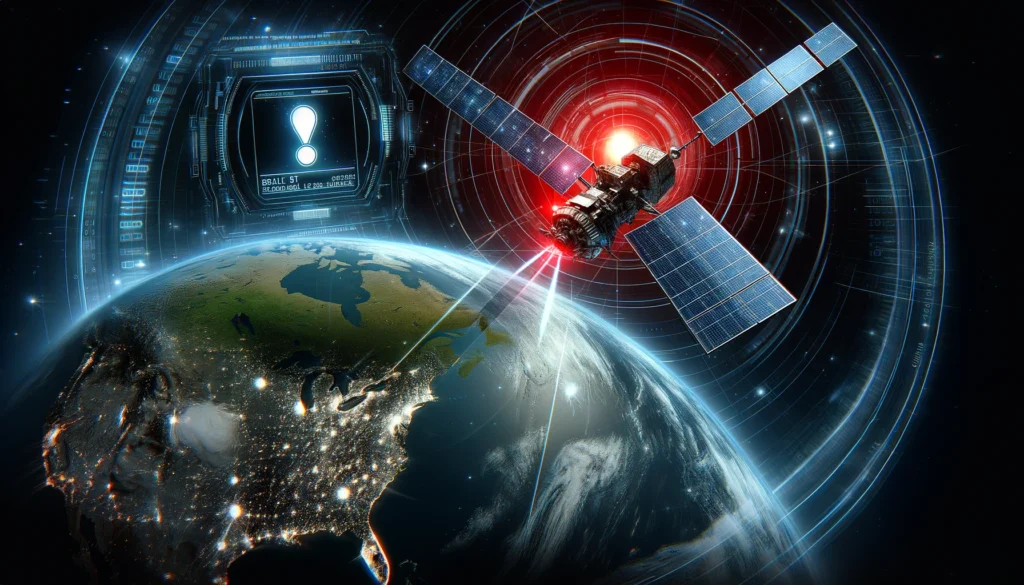As the race to dominate outer space accelerates, cyber threats have emerged as a critical challenge, posing risks not only to the ambitions of spacefaring nations but also to global security. Spacecraft and satellite systems, integral to both scientific and military operations, are increasingly vulnerable to sophisticated cyberattacks from state actors and rogue hackers operating far below Earth’s orbit.
In 2022, SpaceX’s Starlink satellite system became a high-profile target, with Elon Musk attributing the attack to Russia amid the ongoing Ukraine conflict. Similarly, the U.S. government has warned of espionage activities by China and Russia targeting companies like SpaceX and Blue Origin. These cyber campaigns threaten to disrupt operations, compromise sensitive data, and even wrest control of space vehicles, according to William Russell, a senior official at the U.S. Government Accountability Office.
The Expanding Frontier of Cyber Risks
Space-based systems are unique in their operational constraints. Unlike terrestrial systems, repairs or updates cannot be conducted physically once a satellite or spacecraft is in orbit. “Cyberattacks in this domain could lead to the loss of mission data, diminished system capabilities, or even the hijacking of space vehicles,” said Russell.
The risks extend across three critical segments: spaceborne assets, ground-based infrastructure, and the communication links between them. A breach in any one of these areas could trigger cascading failures, said Wayne Lonstein, cybersecurity expert and co-author of Cyber-Human Systems, Space Technologies, and Threats. “Threats on Earth, such as power grid disruptions or internet outages, can echo in space, leading to severe consequences,” he explained.
The Double-Edged Sword of AI in Space
Artificial intelligence (AI) is revolutionizing space exploration by enabling autonomous decision-making with minimal human oversight. NASA, for instance, employs AI to guide planetary rovers. However, this reliance on AI introduces new vulnerabilities. Malicious actors could manipulate AI systems through tactics like data poisoning or model inversion, potentially sabotaging missions.
“AI systems can be deceived into making incorrect decisions, leading to mission failure or worse,” warned Sylvester Kaczmarek, CTO of OrbiSky Systems. Moreover, AI could be weaponized to develop counter-space technologies capable of neutralizing satellites and other critical assets.
The U.S. government is taking steps to address these risks. The Cyberspace Solarium Commission’s 2023 report highlighted the need to classify space as critical infrastructure, emphasizing stringent cybersecurity measures. Experts advocate for redundant systems, strict access controls, and fail-safe mechanisms that revert AI systems to a default mode during malfunctions. “Manual overrides must always be an option to ensure safety,” added Lonstein.
U.S.-China Rivalry: A New Battlefield in Space
The geopolitical competition between the U.S. and China has extended into the cosmos, with both nations prioritizing space dominance. Recent cyberattacks, such as those targeting Japan’s space agency JAXA and the U.S.-based Viasat, underline the growing stakes. Classified documents leaked in 2023 revealed China’s intent to disrupt enemy satellites, a tactic that could jeopardize U.S. military and economic interests.
“Space-based systems support critical infrastructure on Earth, and their compromise could have far-reaching implications for national security,” noted Kaczmarek. This underscores the urgency for enhanced collaboration between private companies and government agencies.
Big Tech’s Role in Space Cybersecurity
Silicon Valley giants are playing a pivotal role in bolstering the cybersecurity of space technologies. Microsoft, for instance, provides cloud infrastructure and data management tools to the U.S. Space Force under a $19.8 million contract. Similarly, Amazon Web Services, Google Cloud, and Nvidia offer cutting-edge solutions for processing satellite data and enhancing mission analytics.
While these technologies promise robust defenses, experts caution against over-reliance. “A single point of failure in automated systems could compromise entire missions,” warned Lonstein, emphasizing the need for human expertise to remain central in space operations.
The Path Forward
As the space race intensifies, safeguarding orbital assets against cyber threats is becoming as crucial as the missions themselves. Governments and private enterprises must prioritize comprehensive cybersecurity frameworks, continuous testing, and international cooperation to mitigate the risks.
The new frontier of space exploration is not just a battle for scientific achievement but also a high-stakes contest to secure the digital realm. In this race, the victors will be those who can outpace not only their competitors but also the ever-evolving threats of cyberspace.







